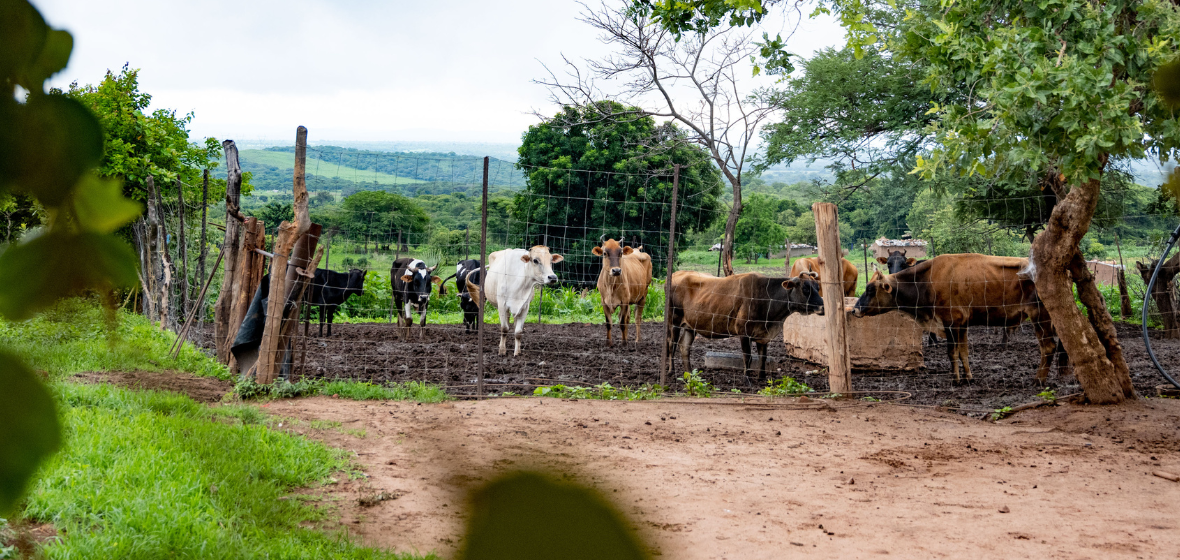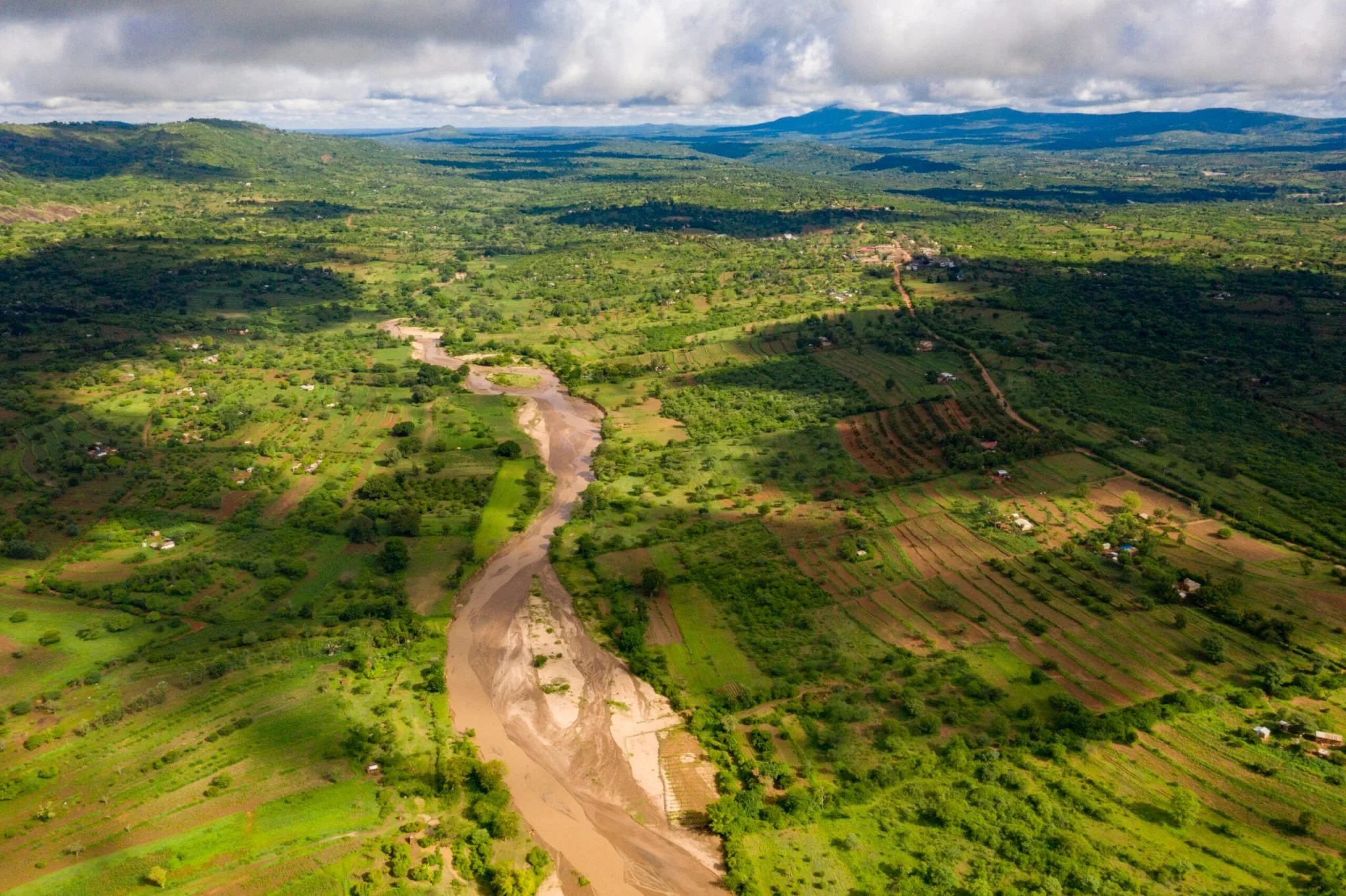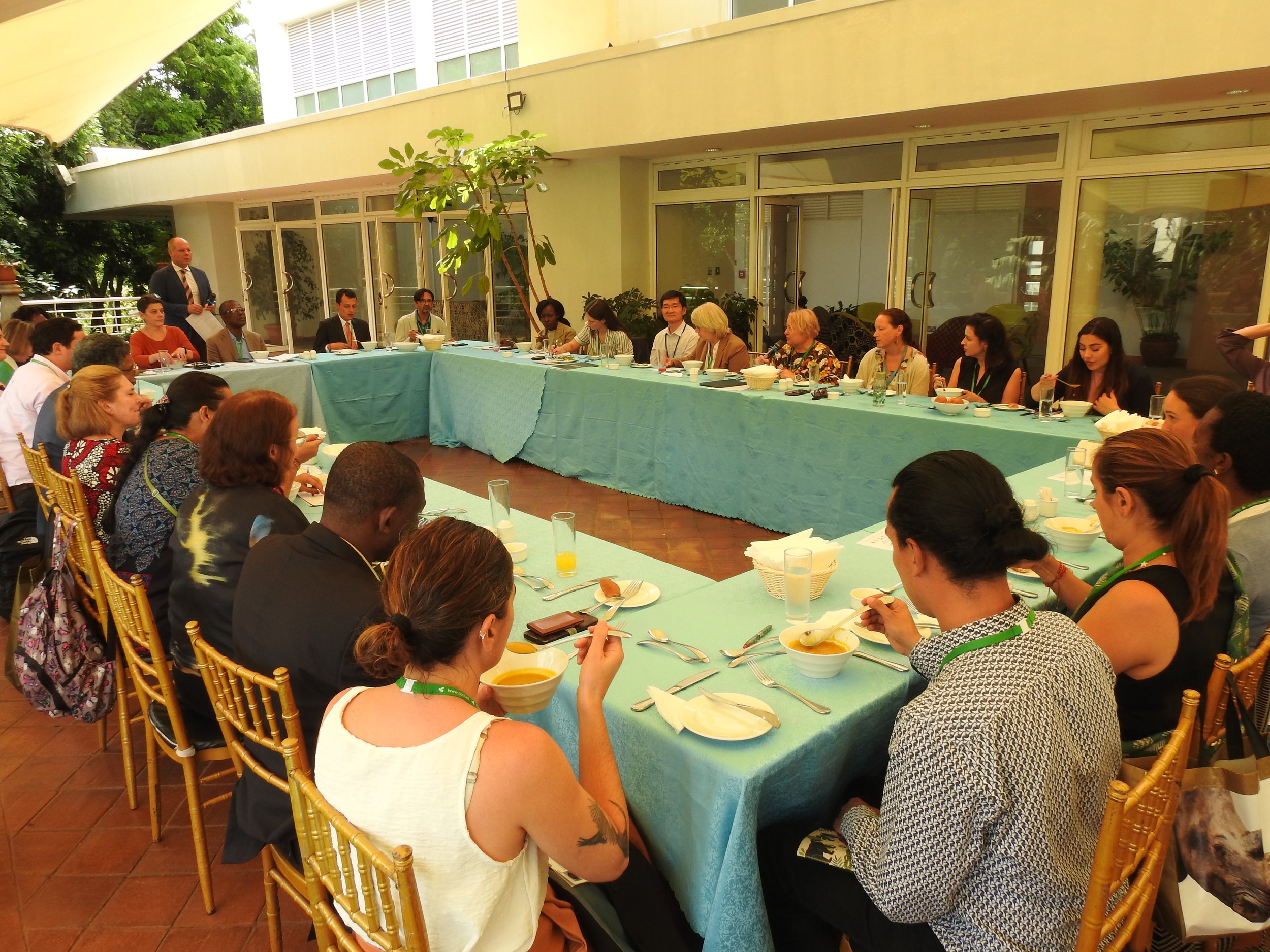
BLOGS, ARTICLES AND NEWS
Get updates directly from the CA4SH Global team and stakeholders
Born in the Sahel, now global: A soil assessment method reshaping restoration science
Twenty years ago in Mali, Tor-Gunnar Vågen and colleagues began experimenting with a methodology to assess and map soil and land health; today, that early work has amplified into a framework with myriad applications for restoration across landscapes.
The Varda Foundation and CIFOR-ICRAF co-hosted a co-design workshop to scale soil data infrastructure in Africa
Across Africa, large volumes of soil data are collected every year, yet much of this information remains difficult to access, combine, or reuse. Addressing this challenge requires not only better digital tools, but stronger collaboration between the institutions that generate, manage, and use soil data. This was the focus of a two-day technical consultation workshop held in Rome in November 2025, which brought together partners working on the open-source transition of SoilHive.
#Youth4Soil: A Global Uprising Cultivating Resilience from the Ground Up
At the third 2025 #Youth4Soil Solutions Showcase, held virtually on September 25, young people from around the world presented ground breaking initiatives that exemplify how young people, rooted in their communities and connected to the land, are cultivating fresh, innovative solutions to restore soil health. Reiterating that just like plants need healthy soil to grow, a sustainable future needs youth-led ideas to flourish. Youth and soil together form the bedrock of regeneration, resilience and renewal.
Soil Cover and Landscape Integrity
The devastating drought of 2021/22 in Kenya severely stressed the soil, underscoring the urgent need for restoration and conservation efforts. On one side of the boundary fence, within the Lewa Wildlife Conservancy, lies a protected area dedicated entirely to safeguarding wildlife. In stark contrast, the area on the left is used for livestock grazing, exemplifying how different land uses impact soil health. This stark juxtaposition serves as a potent reminder: understanding how landscapes function at the soil level is crucial for preserving landscape integrity and ensuring a thriving environment for future generations. Our actions today will determine the health of our land tomorrow.
Unveiling the Underground Allies of Rangelands: A Case Study from Lumo Conservancy
The sun rises over the vast savannas of Lumo Conservancy in Taita Taveta, casting a golden glow across the horizon. Elephants move calmly across the rangelands, leaving soft footprints in the soil. Nearby, antelopes and other herbivores feed in groups, nibbling at the tough grasses. The land, though alive, bears the marks of a harsh climate scarred by heat and irregular rains. Yet just beneath the open-cracked soil is a hidden network, a secret force of life that continues to perpetuate life in a chaotic paradigm of failure even at a time when everything else fails. This hidden life is arbuscular mycorrhizal fungi (AMF). These fungi live in the soil and form a symbiotic relationship with plants. You may not see them, but their impact is clear. Without AMF, many plants would struggle to survive in the tough conditions of the rangelands.
Learn more from the field, by Lukelysia Mwangi, Research Associate, Living Soils at CIFOR-ICRAF
Beyond Workshops: Hands-on Restoration Training for Farmers in Mbooni Community Forest Association, Kenya
CIFOR-ICRAF has been conducting a series of trainings on Gender and Social Inclusion (GESI) in forest and landscape restoration for Community Forest Associations (CFAs) in Makueni County, Kenya as part of the UK PACT project.
To date, the trainings have reached more than 600 individuals, emphasizing the importance of gender equity in achieving sustainable restoration outcomes. Over the past two years of implementation, some common themes have emerged, highlighting that many CFA members feel held back by their current level of skill in agroforestry practices and soil conservation techniques. In response, CIFOR-ICRAF followed up with technical, on-farm training in sustainable agroforestry practices and composting for soil conservation.
Why Food and Agricultural Systems Must Be at the Heart of Climate Adaptation
Climate change is no longer a distant threat—it’s a daily reality for millions of people around the world. And nowhere is this more evident than in the systems that feed us.
Farmers and fishers are on the frontlines of a crisis they did not create. As the climate shifts, so too must our approach to food. It’s time to put food and agricultural systems at the centre of climate adaptation.
Read the full story from WWF
Restoring Nature, Strengthening Communities: Launching a New Era of Restoration Through FOLAREP
In 2023, the Kenyan Ministry of Environment, Climate Change and Forestry developed a national strategy, the Forest and Landscape Restoration Plan (FOLAREP) to apply nature-based solutions to conserve forests and combat land degradation. Forest conservation offers a highly effective carbon-capturing sink and maintains biodiversity and other ecosystem services.
CIFOR-ICRAF has been working to develop county-specific plans for Makueni and Taita-Taveta counties in partnership with local governments, the Food and Agriculture Organization and the African Wildlife Foundation through the UKPACT Nature-based solutions project funded by the UK government.
Taita Taveta County, Kenya, Unveils Ambitious Plan to Restore 226,420 Hectares of Degraded Land
By Albert Mwangeka
Taita- Taveta County, Kenya: Taita Taveta County has launched the Forest Landscape Restoration Implementation Plan (FOLAREP), a bold initiative targeting the restoration of 226,420 hectares of degraded land. The launch coincided with the World Day to Combat Desertification and Drought, underscoring the country’s commitment to environmental sustainability.
#Youth4Soil in the Field | Hands-on Learning of Syntrophic Agriculture in Kenya
From February 5th to 9th 2025, I and three other Community Facilitators working with CIFOR-ICRAF in Kenya were privileged to attend a Syntropic Agroforestry and Regenerative Regenerative Agriculture course at ForestFoods in Limuru, Kenya. It was an awesome 4-day training course with intensive learning about the topic coupled with lectures and field activities.
Story and photos by Clemence Mnyika, Community Facilitator with CIFOR-ICRAF Kenya and Member of #Youth4Soil
#Youth4Soil Presents the First Youth Soil Health Solutions Showcase
The Coalition of Action for Soil Health (CA4SH) #Youth4Soil Working Group held its inaugural Virtual Soil Solutions showcase on Thursday, 6th March 2025. The event was dubbed “We Grow We Eat” to celebrate soil as a growing medium for 95% of the world's food. The showcase provided a platform for #Youth4Soil members to exhibit the soil health solutions they are already implementing in their local contexts and interact with key stakeholders to grow those solutions.
CA4SH, CIFOR-ICRAF, Varda & Norad partner on a pilot initiative to advance soil knowledge exchange
On 14 January 2025, the Coalition of Action 4 Soil Health (CA4SH) hosted a reflection webinar for a recent pilot initiative from CIFOR-ICRAF, Varda, and the Norwegian Agency for Development Cooperation. Over 125 participants attended to hear insights on the soil data ecosystem in Kenya and Tanzania and contribute their questions and perspectives on the pilot results and the future of soil health data on the African continent.
#Youth4Soil Member in the First Cohort of the Youth Academy on Climate Adaptation & Leadership
From 19-26th September 2024, the inaugural cohort of the Youth Academy on Climate Adaptation & Leadership met in Nairobi, Kenya to strengthen their skills around youth leadership and climate adaptation.
The Academy was officially launched via a partnership between the Global Centre on Adaptation, the University of Nairobi, and the University of Groningen. The University of Nairobi hosted the 62 students, government officials, youth organizations, and other youth stakeholders who were selected to join the Academy. Among them was #Youth4Soil member Eliseus Bamporineza who shared some reflections in a Q&A with CA4SH.
Celebrating the Launch of the Allure of Soil Campaign
On 13 September 2024, the Allure of Soil Campaign was officially launched in Nairobi, Kenya, with sights set on the global stage!
The Coalition of Action 4 Soil Health (CA4SH) was excited to join CIFOR-ICRAF, the African Wildlife Foundation and more in celebrating the official launch of the campaign.
I am Soil - A poem by #Youth4Soil’s Eliseus Bamporineza
Eliseus Bamporineza is an East African Community Youth fellow, writer, poet, and staunch advocate for youth empowerment. He is a dedicated and visionary leader committed to driving positive change in the fields of education, climate resilience, agribusiness and diplomacy across Africa. Through different initiatives, such as Feed2Care where he advocates for quality food for all, and #Youth4Soil where he gives voice to life under our feet, he is committed to raising concerns about soil health threats and the need for its protection.
Local Knowledge is Key for Grassland Conservation and Restoration
In Northern Kenya, WWF works with a community-run organisation called Nature and People as One (NaPO) through the Voices for Climate Action programme, which serves as a great example of harnessing the intergenerational knowledge and experience of pastoralist communities. Founded in 2018 by young people from Karare, Marsabit, NaPO works closely with pastoralists to address the challenges they are facing constructively, in order to protect, manage and restore rangelands and the valuable ecosystem services they provide.
Read the full story on the UN Decade of Restoration website
Video Blog | Getting your hands dirty! Workshop on soil management by UNEP and ICRAF 🌱
This video blog is from the UNEP YouTube channel
To mark 2024 World Environment Day, the Center for International Forestry Research and World Agroforestry (CIFOR-ICRAF) brought their lab to the UN complex in Nairobi (UNON) to teach the #generationrestoration the basics of soil management and opportunities for restoration.
The workshop on “The pathway to healthy soil management” hosted 40 students from Aga Khan Academy, Lenana School and Kenya High School. Students got their hands dirty learning about different types of soils, causes of land degradation, best practices and nature-based solutions to soil management.
CA4SH Co-Hosted a Roundtable Luncheon on the Side of the CBD SBSTTA26
To bridge actions between the UNFCCC and UNCBD, CA4SH and partners WWF, UNEP, the Alliance of Bioversity and CIAT, CGIAR, CIFOR-ICRAF, Biovision and the New Zealand Ministry of Foreign Affairs and Trade co-hosted a roundtable luncheon on the sidelines of the UNCBD Twenty-sixth meeting of the Subsidiary Body on Scientific, Technical and Technological Advice (STTA26). The luncheon was called Food Systems Transformation & Land Use Change: Unlocking the potential for enhanced synergies and finance through NBSPAs and NDCs, where attendees joined a group discussion on how aligning the UNFCCC and UNCBD could unlock and enhance synergies and scale-up financial support at the national level to enable food systems transformation.
CA4SH at AFSHS2024: Multistakeholder action for Africa’s soils
From 7-8 May 2024, African leaders and stakeholders came together to reverse soil degradation and map a joint way forward for the continent by putting farmers first.
The Africa Fertilizer and Soil Health Summit (AFSHS) was raised to address changes in the agricultural sector in Africa since the 2006 Abuja Declaration on Fertilizer for the Africa Green Revolution. Since the Abuja Declaration, sustainable soil management has become an increasingly recognized priority for reversing land degradation and contributing to the climate adaptation strategies of African countries.
As active proponents of soil health to address all 17 Sustainable Development Goals, CA4SH participated in and hosted several sessions at the AFSHS to bridge science and policy spaces with examples of concerted action on the ground.
CA4SH Finance Webinar: Investing in soil health from the ground up
From afar, scaling soil health by switching from traditional monocrop agricultural systems to regenerative systems may seem as easy as planting the right plants in the right spot. However transitioning to new systems usually sees farmers’ yields decrease before they increase, which can be a limiting factor for farmers who don’t have a financial cushion to fall back on. Support is needed to help them bridge the gap.
CA4SH is a multi-stakeholder partnership of member states, the private sector, research institutions, civil society, farmer organizations, multilateral organizations, NGOs, and more. Drawing on this wealth of knowledge, we organized the second installation of our 2024 Webinar Series: The road ahead for soil health action to explore different mechanisms to invest in soil health, making sure these investments reach smallholder farmers.




















